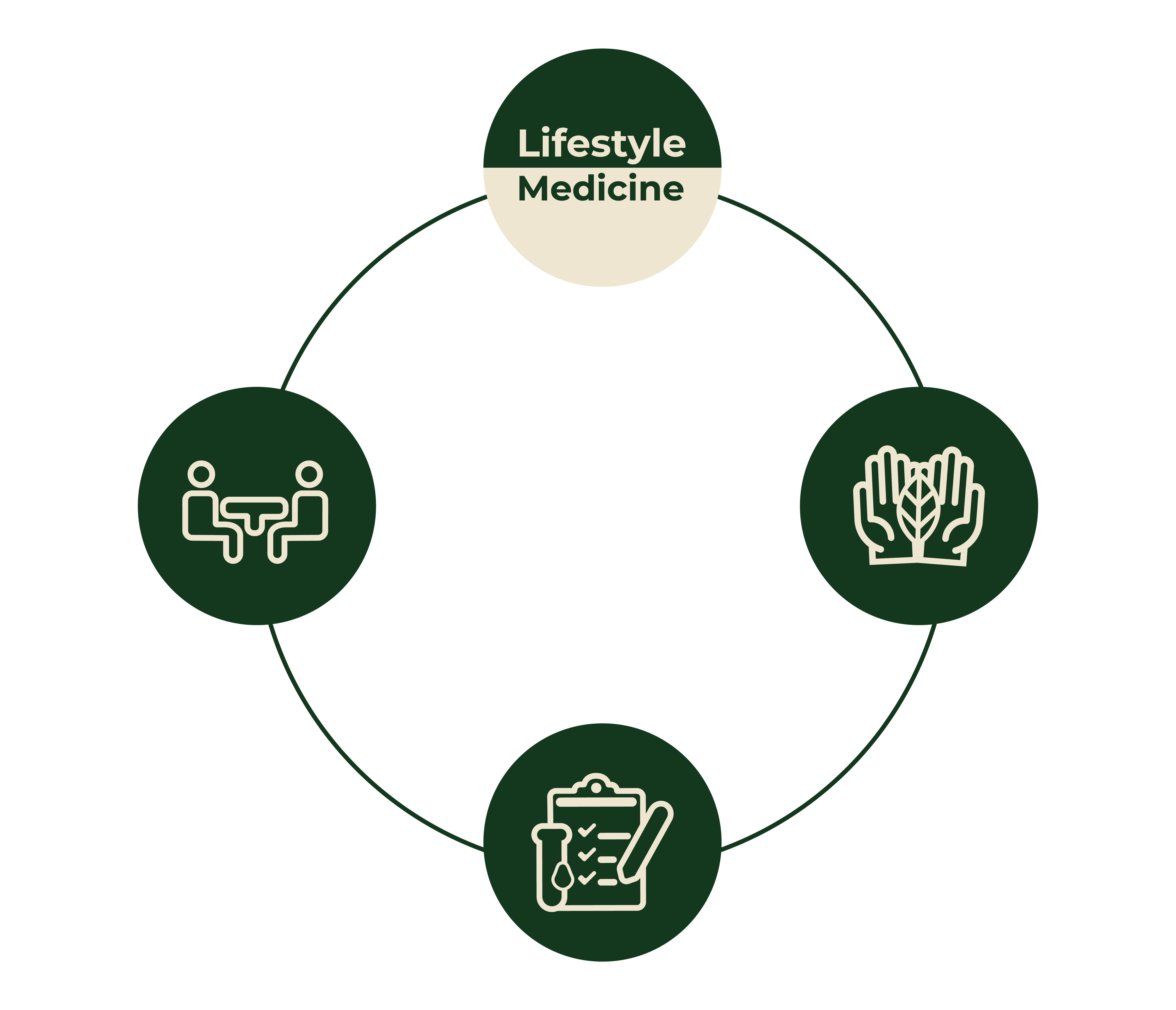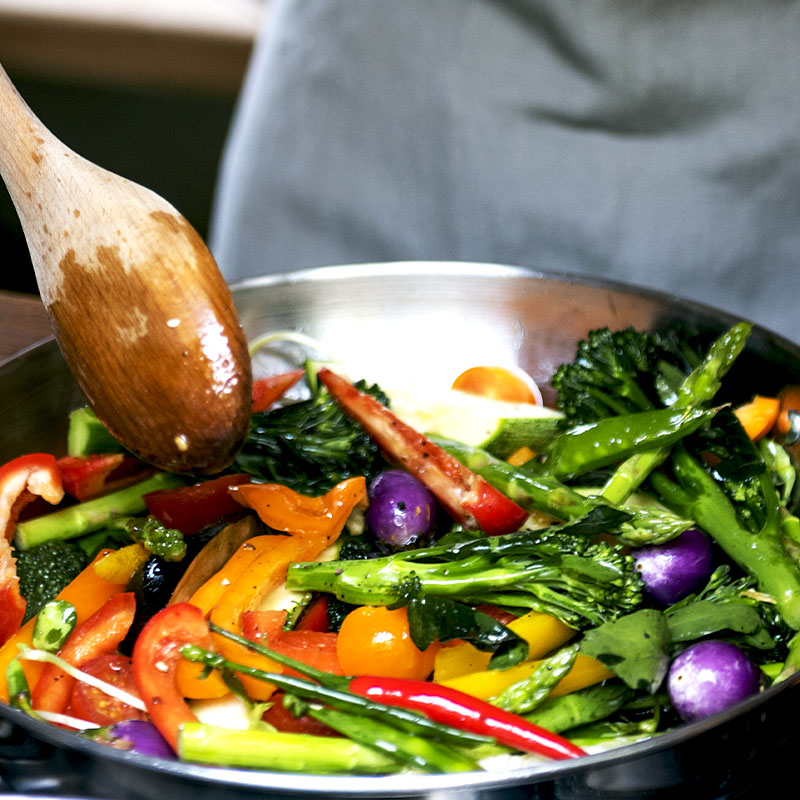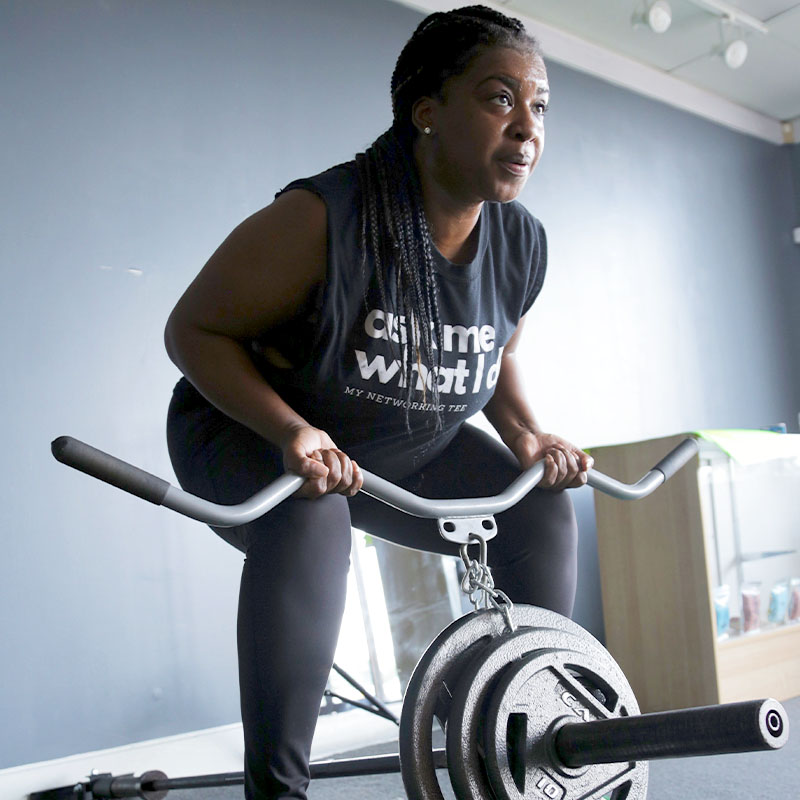Lifestyle Determines Health
Lifestyle Medicine at Soul Fire Wellness Center.

In depth Consultations:
Consultations will be conducted by a registered medical practitioner. We take our time to understand your unique concerns. We review your medical history, current lifestyle and discuss any persistent issues. This helps to provide us with a complete view of your current health status and what needs to be addressed moving forward.
Laboratory testing:
We provide blood and urine testing, both of which screen for risk factors for disease like elevated cholesterol and blood sugar. Laboratory testing also provides information on organ function (kidney, liver, etc) and is able to identify any increased risk for a heart attack or stroke. After a complete analysis of your results we offer a comprehensive report on your general health, highlighting areas of concern and identifying possible trends towards certain diseases.
Holistic Approach:
58% of males and 75% of females are not at their ideal weight
%
MALES
%
FEMALES
SIX MAIN DETERMINANTS OF HEALTH
Nutrition
Food is Medicine. Choose predominantly whole, plant-based foods that are rich in fiber and nutrient dense. Vegetables, fruit, beans, lentils, whole grains, nuts and seeds.
Helpful Tips On Nutrition
Physical Activity
Regular and consistent physical activity that can be maintained on a daily basis throughout life is an essential piece of the optimal health equation.
Helpful Tips On Physical Activity
Examples
Aerobic or endurance activities
- running, swimming, biking, hiking, playing sports, dancing and brisk walking
Strength or resistance activities
- weight lifting, body weight exercises such as squats, lunges, pushups
Flexibility activities
- stretching and some forms of yoga
Balance activities
- tai chi, qi gong and some forms of yoga
Guidelines
*It is important to tailor your activity to your own fitness level.
Activity Goals
An example of a positive activity goal is, “I will walk with a friend or family member for at least 20 minutes every weekday for the next two months.”
Warning/Disclaimer: Always talk to your doctor before starting a new activity
Sleep Quality
Insufficient or poor-quality sleep can have a negative impact on your health. It is important to identify dietary, environmental and behavioral issues that may be affecting your sleep quality.
Helpful Tips On Sleep
Try to go to sleep and get up at the same time every day. This helps set your body’s internal clock and to optimize your quality of sleep. Choose a bed time when you normally feel tired, so that you don’t toss and turn. If you keep a regular sleep-wake schedule, you’ll feel much more refreshed and energized than if you sleep the same number of hours at different times, even if you only alter your sleep schedule by an hour or two.
Cut back on sugary foods and refined carbs.
Eating lots of sugar and refined carbs, such as white bread, white rice, and pasta, during the day can trigger wakefulness at night and pull you out of the deep, restorative stages of sleep.
Stress Management
Challenges can bring out the best or the worst in you; they can lead to depression and anxiety or force you to improve your productivity and achieve your goals. Recognizing negative stress responses, identifying coping mechanisms and utilizing stress reduction techniques can lead to improved wellbeing.
Helpful Tips On Stress Management
Walking is good for you, but not all walks are created equal. Hiking a local trail or feeling the sandy beach between your toes can provide a much needed mental boost. Try not to place too many restrictions on the time and choose sceneries that you find comforting.
Listening to Music
Choose music that you find relaxing or invigorating. Every situation is different and, depending on what is needed at the time, you may want to choose music which makes you want to dance or something which calms you down and relaxes you.
Meditate
Meditation can take on many forms; sitting quietly and observing a nice scenery; a peaceful afternoon gardening or an intense session in the gym. The key is to engage in an activity that allows your mind to rest and helps to put stressful events behind you.
Relationships
Social connections can help with emotional resilience. Your interpersonal relationships can have a serious impact on your mood and attitude. Having a strong support structure and having strategies to deal with difficult individuals can help you lead a more productive and fulfilling life.
Helpful Tips On Relationships
Negotiate flexible hours if possible. Flexibility in your work life can bring an incredible stress release to a household. If possible, alter your work schedule so you can have more free time for family and friends.
Make room for family time.
Look out for opportunities where you can sit together to catch up.
Make room for couple time.
Just as it is important to spend time interacting with your children, it’s important to spend time interacting with your partner. Set aside time for one another.
Take time for yourself.
Taking time for yourself has to be a priority. Go for a walk and feel the sun on your face. If you take care of yourself, you will be better able to take care of those you love and manage the stress that a busy schedule may bring.
Use of risky substances (tobacco & alcohol)
Some of the documented dangers of any risky substances include an increased risk for many cancers and heart disease. Positive behaviors that improve health include cessation of tobacco use and limiting the intake of alcohol.
Helpful Tips On Substance Use
A standard alcoholic drink is:
- 12 oz beer
- 5 oz table wine
- 1.5 oz/1 shot of hard liquor (vodka, gin, rum)
Typical Containers:
- 750 mL wine = 5 drinks
- 750 mL spirits = 18 drinks
- 1 L spirits = 24 drinks
Men should consume no more than 4 drinks on any day and no more than 14 drinks in 1 week.
Women should consume no more than 3 drinks on any day and no more than 7 drinks in 1 week.
Avoid binge drinking as this can negatively affect health even if it is once per week.
“Binge” drinking is defined as:
- 5 drinks in 2 hours for men
- 4 drinks in 2 hours for women
SIGN UP TO RECEIVE OUR MONTHLY ARTICLES.
CALL: (246) 847-4179
EMAIL: info@soulfirewellnesscenter.com
ADDRESS: Kendal Hill, Christ Church, Barbados
HOURS: MON-FRI: 10AM – 5PM | WEEKENDS: CLOSED
FOLLOW SOUL FIRE WELLNESS CENTER ON SOCIAL MEDIA
COVID-19 PROTOCOLS
Soul Fire Wellness Center is keen to keep our clients healthy and protected; strict COVID-19 protocols are in place. Clients are seen by appointment. Appointments are allocated to limit patient interaction.
We appreciate your kind cooperation!






